alternative facts
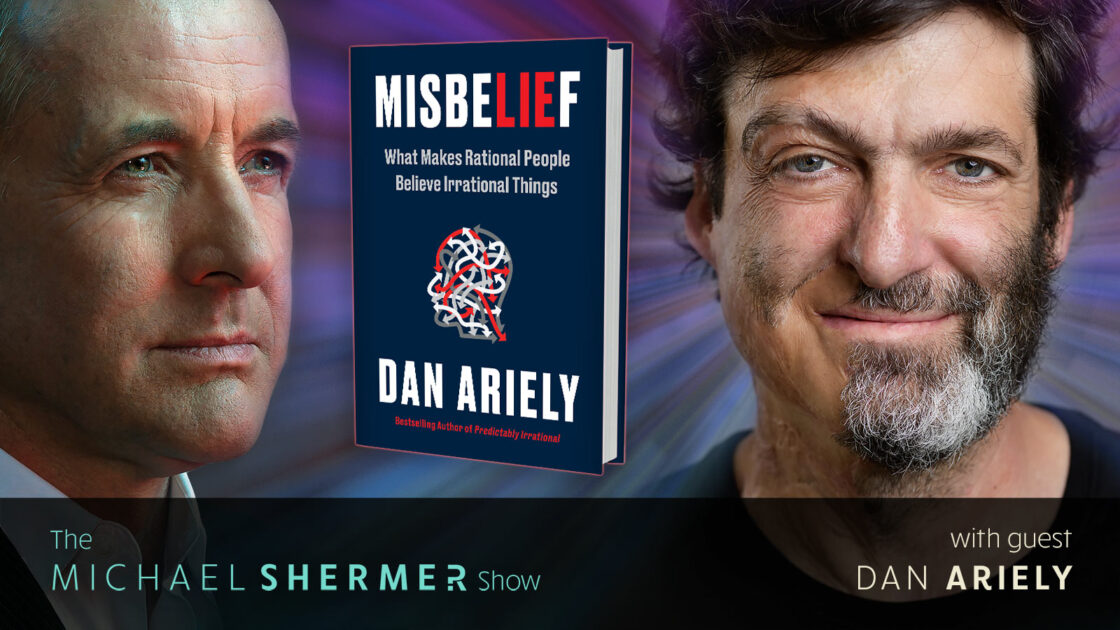
Shermer and Ariely discuss: What is disinformation and what should we do about it? • How do we know what is true and what to believe? • virtue signaling one’s tribe as a misbelief factor • the role of complex stories in misbelief • emotions, personality, temperament, trust, politics, and social aspects of belief and misbelief • the funnel of belief • social proof and the influence of others on our beliefs • a COVID-23 pandemic • social media companies…
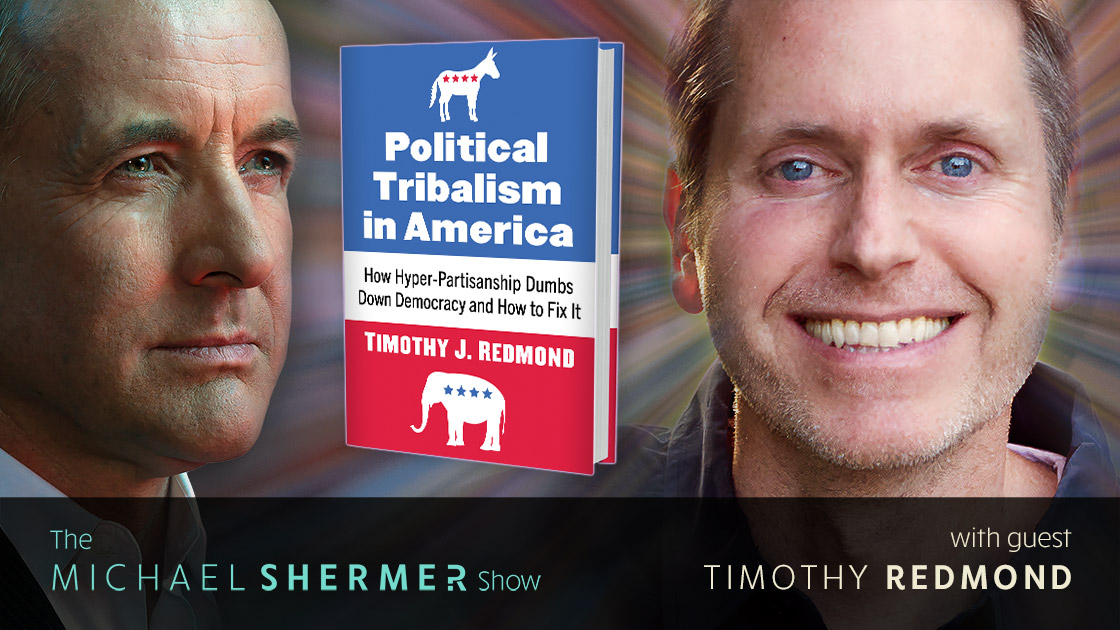
Shermer and Redmond discuss: why we have political duopoly (Duverger’s law) • parties vs. policies • Are we living in a post-truth, fake-news, alternative facts world? • How do we know political polarization is worse now than in the past? • acquiring, perceiving, and evaluating political information • evaluating: false political information, political numbers and arguments, claims of rigged election • whataboutism • cognitive responsibilities of citizenship • cognitive biases • political polarization • myside bias • numeracy vs. innumeracy…
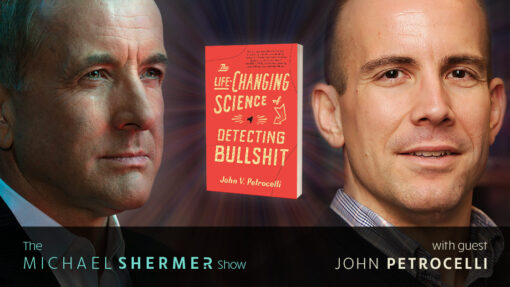
In episode # 207, Michael Shermer speaks with experimental social psychologist and Professor of Psychology at Wake Forest University, John Petrocelli about his research that examines the causes and consequences of bullshit and bullshitting in the way of better understanding and improving bullshit detection and disposal.
In episode # 207, Michael Shermer speaks with experimental social psychologist and Professor of Psychology at Wake Forest University, John Petrocelli about his research that examines the causes and consequences of bullshit and bullshitting in the way of better understanding and improving bullshit detection and disposal. PLUS, the newest issue of Skeptic magazine (26.3: UFOs and UAPs) is now available in print and digital formats.
In a lecture, Dr. Michael Shermer addresses one of the deepest questions of all: what is truth? Following that, Lee McIntyre and Michael Shermer debate whether we are living in a Post-Truth era of fake news and alternative facts.

Is post-truth the political subordination of reality? Is truth itself any more under threat today that in the past? Have the populists & postmodernists won the day? In response to Dr. Lee McIntyre’s essay, Dr. Michael Shermer asserts that people are not nearly as gullible as some believe.
In Science Salon # 89 Michael Shermer speaks with Richard Dawkins about his new book Outgrowing God. Dawkins explains how the natural world arose without a designer and challenges head-on some of the most basic assumptions made by the world’s religions. PLUS: Is the statement “We are living in a post-truth world” true? If your answer is “yes” then the answer is “no” because you’ve just evaluated the statement in an evidentiary manner, so evidence still matters and facts still…

Is the statement “We are living in a post-truth world” true? If your answer is “yes” then the answer is “no” because you’ve just evaluated the statement in an evidentiary manner, so evidence still matters and facts still matter. Harvard psychologist Steven Pinker explains why were are not living in a post-truth world in this deeply insightful cover story from Skeptic magazine 24.3 (2019).
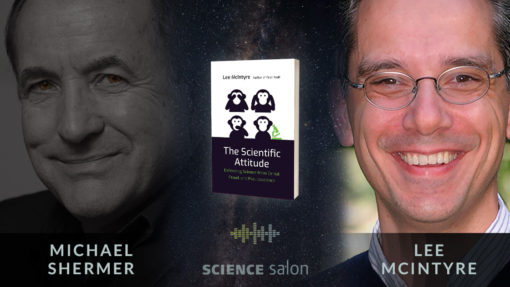
In Science Salon # 77, an engaging conversation on the nature of science, Dr. McIntyre and Dr. Shermer get deep into the weeds of where to draw the line between science and pseudoscience.
In Science Salon # 77, an engaging conversation on the nature of science, Dr. McIntyre and Dr. Shermer get deep into the weeds of where to draw the line between science and pseudoscience. PLUS Dr. John Glynn reflects on our ever-increasing sensitivity to the perception of harm in an article about concept creep.

No event in the twentieth century did more to popularize conspiracy theories and confuse the general public than the assassination of President Kennedy. By educating people about what actually happened to JFK, and how conspiracy theorists have deliberately lied about it, James K. Lambert hopes that we can also get the general public to better see the lies (aka “fake news”) of today.

No event in the twentieth century did more to popularize conspiracy theories and confuse the general public than the assassination of President Kennedy. By educating people about what actually happened to JFK, and how conspiracy theorists have deliberately lied about it, James K. Lambert hopes that we can also get the general public to better see the lies (aka “fake news”) of today.

In a time when the Oxford English Dictionary has named “post-truth” as its word of the year (2016), Dr. Gleb Tsipursky avers that we can create a mechanism for differentiating the liars from the truth-tellers, ensuring the veracity of public information.

In a time when the Oxford English Dictionary has named “post-truth” as its word of the year (2016), Dr. Gleb Tsipursky avers that we can create a mechanism for differentiating the liars from the truth-tellers, ensuring the veracity of public information.
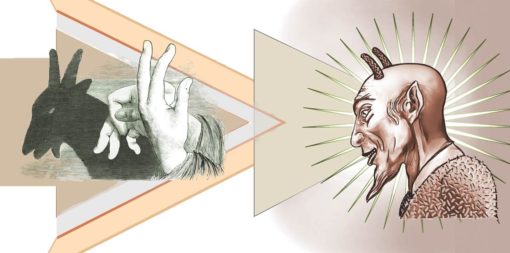
In this week’s eSkeptic, medical sociologist Dr. Robert E. Bartholomew, examines a “baffling epidemic of hallucinations” that was reported to have broken out in Oregon in October of 2016. Was it an outbreak of mass suggestion, or simply an surge of shoddy journalism?

















